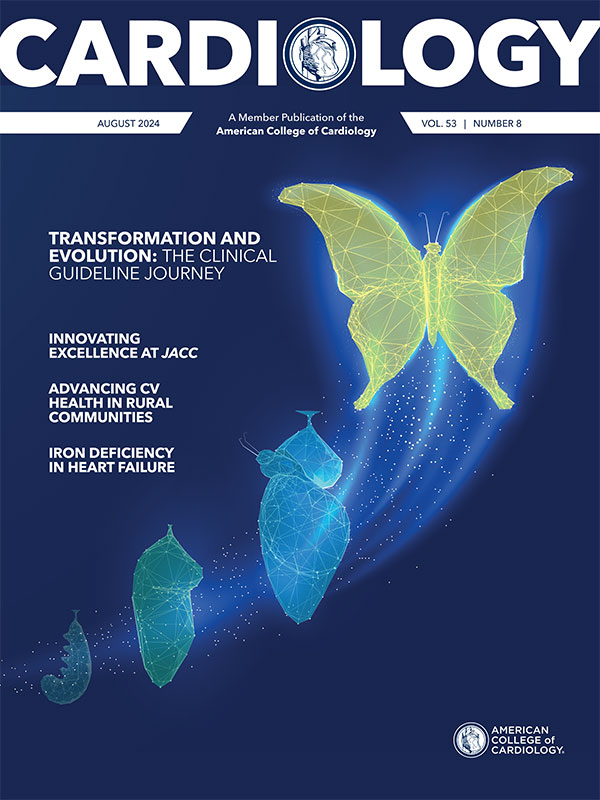Feature | Advancing Heart Health in Rural Communities

The ACC, in partnership with the JF Maddox Foundation, kicked off the Rural Cardiovascular Health Initiative (RCHI) earlier this year. The 12-month pilot project taking place in Hobbs, NM, aims to create and test an action module that can be used more broadly to improve cardiovascular health in rural communities nationwide.
Cardiology talked with Thomas M. Maddox, MD, MSc, FACC, whose family's foundation is supporting the program, about the impetus behind the program, key deliverables, and his path to both leadership and philanthropic giving with the College.
What was the driver behind your family Foundation's decision to fund RCHI?
I chose to support this initiative based on my interests in cardiology and heart health, health disparities, and rural communities. We know that people living in rural communities have many challenges in accessing many things that affect heart health, including reliable health care and other resources to support healthy lifestyles.
My parents still live in the rural southeastern New Mexico area where I grew up and I see firsthand the challenges that they experience. Our family's foundation, the JF Maddox Foundation, is focused on improving life in southeastern New Mexico, so there was a natural connection between their mission and the RCHI.
What are the major goals behind the program?
The city of Hobbs is in one of the most sparsely populated areas in New Mexico. In addition, its population is about 60% Hispanic and employment is cyclical in nature, fluctuating based on the needs of the oil and gas industry.
The prevalence of major cardiovascular risk factors like physical inactivity, obesity, diabetes, heart disease and stroke is higher than in the rest of the U.S., due to socioeconomic factors like poverty, environmental hazards and limited access to health care and insurance coverage. These factors make Hobbs and its surrounding communities an ideal place to design and test new models of delivering cardiovascular health care and enhancing cardiac health.
The RCHI aims to mitigate these factors in three key ways:
- Improve HOSPITAL cardiovascular care through the integration of advanced cardiovascular training at Covenant Health Hobbs Hospital.
- Engage COMMUNITY members by deploying Community Health Workers trained to provide cardiac-specific patient education.
- Increase community-wide awareness of cardiovascular risk factors through PATIENT-centered materials.
What are the key elements of the RCHI?
Looking For Ways to Give Back?

The ACC offers a number of opportunities to contribute to the sustainability of programs like the RCHI. Click here to learn more.
The RCHI will involve the following six elements:
- Develop an education curriculum aimed at helping community health workers engage with patients about heart health.
- Partner with key stakeholders to recruit, train and evaluate community health workers.
- Provide online and on-site practice sessions for community health workers.
- Assign trained community health workers to locations where community education is most needed.
- Measure and evaluate community health worker methods to gauge impact and identify best practices.
- Engage community health workers in follow-up with communities around heart healthy behaviors.
How do you see this program fitting within the College's broader Strategic Plan and health equity work?
Health equity is literally embedded into the ACC's Mission, Vision and Core Values. Not to mention, the College's new Strategic Plan includes building and executing a health equity plan as a major initiative over the next five years.
The RCHI is a perfect test case for elements of the broader health equity plan. These elements include improving education, health care access and quality, along with tangible, on-the-ground collaborations with local communities, especially those with traditionally underrepresented populations.
As a longtime leader of the ACC, most recently heading up the Science and Quality Committee (SQC) and now serving on the Board of Trustees (BOT), do you have advice for others looking to give back to the College as a leader and/or as a philanthropic donor?
Learn More About the Rural Cardiovascular Health Initiative.
The ACC has been a wonderful community for me throughout my career. I've met so many cardiology professionals who have been great mentors, colleagues and friends over the years. The College has also done important work in cardiovascular science, education, quality, advocacy and care delivery. I've really enjoyed participating in and helping to lead that work.
Based on this experience, I encourage all my colleagues to get involved in the College, find those areas that spark your interest and passion, then support it with your time, talent and treasure. I promise the return will far exceed your investment!
What have been some of your proudest contributions to the College, to date?
I'm proud of the research that I and my fellow PINNACLE Research and Publications committee members spearheaded about a decade ago to drive improvements in ambulatory CV care in the U.S.
I'm also proud of the work that I and my fellow SQC members were able to advance about five years ago, including more tailored clinical practice guidelines; clinical guidance documents such as expert consensus decision pathways and appropriate use criteria; and quality improvement projects for various cardiac conditions. I'm also proud of our work in standing up and supporting the ACC COVID-19 Hub during the pandemic.
Lastly, I'm proud of the strategic work of the BOT to advance the College's Mission over the past three years, including standing up a proposed new CV Board, enhancing educational offerings, tackling health inequities and workforce challenges, or sparking innovation in care delivery.
Clinical Topics: Cardiovascular Care Team
Keywords: Cardiology Magazine, ACC Publications, Rural Population, Socioeconomic Factors, Community Health Workers, Obesity, Health Behavior

